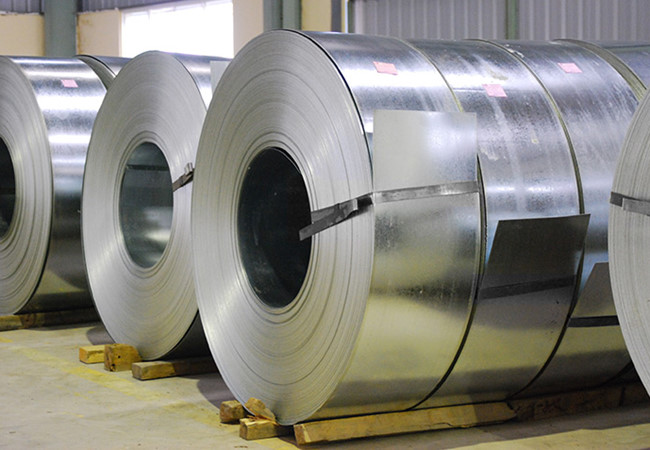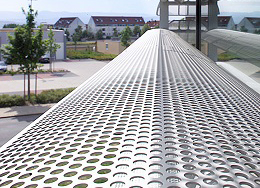
Thống kê
| 1882815 | |
| Số người đang online | 1 |
| Số truy cập hôm nay | 226 |
| Số truy cập tháng này | 57956 |
Quảng cáo
By EU anti-dumping, China steel "for" Vietnam more?

|
With the European Union (EU) imposed anti-dumping steel products from China and Taiwan Tuesday 27/1, experts are concerned about the Chinese steel imported into Vietnam will increase, and cause the instability of the steel market.
EC statement on 27/1 affirmed the survey has confirmed that stainless steel tubing from China and Taiwan, and a welded steel tubes for the top steel being dumped in Europe. Steel products imported from China will be taxed from 30.7 to 64.9%, while Taiwan's products will be faced with from 5.1 to 12.1% tax rate.
Experts evaluate this measure is part of efforts by the EU done to curb China, which produces more than half the world's steel, for allegedly flooding the global market.
Earlier, the US has also imposed anti-dumping duty order on certain 266% steel products imported from China.
In Vietnam, according to statistics from the General Administration of Customs, in 2016, when the US applies anti-dumping duty on steel products from China, Vietnam has imported 10.85 million tonnes from China steel, worth more than US $ 4.45 billion, an increase of 14.25% in volume and 7.1% in value.
China Steel has been and will continue to be a threat to Vietnam's steel-evident fact. Specifically, in 2016, following the recommendation of the domestic steel enterprises and the investigation, dated 01.09.2016, the Ministry of Trade and Industry has imposed anti-dumping duty on import of coated steel products imported into Vietnam with tariffs ranging from 5-30%.
Earlier, on 03.07.2016, the Ministry of Industry and Trade also apply temporary safeguard duty on steel products and long steel billet import tariffs by 23.3% times respectively and 14.2%.
However, the increase in China's steel imports in 2016 and the preceding year to 3 reality show at the same time:
One is that after years of application of preferential policies to encourage the development, the Vietnam Steel has no ability to compete on price with Chinese steel.
Secondly technical barriers such as standards of Vietnam, quotas, tariffs ... still not enough to prevent ensure similar products imported at low prices, even for dumping imports at market domestic and thereby undermining domestic steel production.
Three is because Vietnam has participated in many trade agreements, with tax incentives for exporters of products originating from countries participating in the agreement, so of course there will be similar products from other countries ( including China steel) sought to import then "borrowed" origin Vietnam and exported to the markets of preferential tariffs.
In fact, in 2016 and previous years, while Vietnam imposition of anti-dumping some imported steel products, many steel products originating in Vietnam (such as steel pipes, galvanized steel, rivets , steel ...) and anti-dumping lawsuits in many large markets such as Malaysia, Thailand, Australia, the US, EU ... And the fact no less certain steel products of Vietnamese enterprises have been subject to anti-dumping duties old.
In that situation, we can see, the EU (and about to have a number of other countries) imposed anti-dumping Chinese steel, is completely capable to stimulate increased activity China steel imports Korea to Vietnam, and then "re-manufactured" origin before export in order to enjoy tax incentives.
It should be noted that, under the current regulations, the legal risk to imported steel - steel, whether China or other countries with cheaper prices - not a commercial activity with signs of law violation. This also means it will be difficult to prevent this steel product imports increased about Vietnam.
The problem is that the lack of barriers strong enough to control will cause no small amount of steel import penetration and stabilize the market losing domestic steel. At the same time, Vietnam made a bad reputation in the implementation of international treaties, while paving the way for the foreign products of the agreements cause market disruption of the participating countries of the agreement.
With both his consequence, seems to benefit from the purchase is cheap steel imports, even dumping, it is hard to compensate for the long term.
Finally, participation in treaties, trade agreements is to encourage market development and production of the participating countries. But as this participation is not benefiting domestic production, which again facilitates the product from countries not party to the agreement may be profiteering, the data integration objectives is still necessary?
Source: Viettimes
|
Liên kết website
Hỗ trợ trực tuyến
-
 Liên hệ ngay.Email:ĐT: (08) 6682 3335 - Fax: (08) 6256 2218
Liên hệ ngay.Email:ĐT: (08) 6682 3335 - Fax: (08) 6256 2218
Ngày giờ hiện tại
13/9/2025
clock




